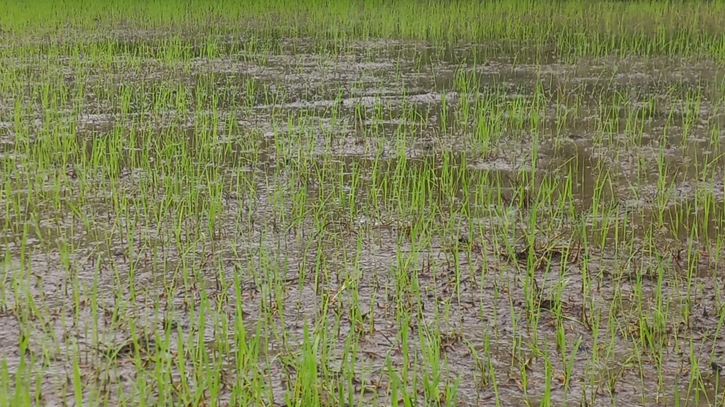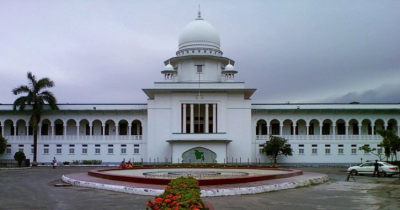
Photo : Messenger
Due to incessant rainfall, aman rice cultivation in Barguna is severely affected, causing great concern among farmers. Throughout the monsoon season, persistent downpours have led to waterlogging in paddy fields, damaging the seeds. Despite repeated attempts to sow rice seeds, farmers have failed to nurture the seedlings, resulting in a bleak harvest outlook this year.
Dr. Abu Sayed Mohammad Jobayadul Alam, Deputy Director of Barguna's Department of Agriculture, stated that a target of planting aman rice on 99,500 hectares of land was set for this year. However, nearly 300 hectares of land have been completely destroyed due to excessive rainfall, exacerbating the farmers' distress.
Elias, a farmer from the small village of Lobonagola in Barguna, expressed disappointment over the failed rice production this season, which traditionally yields bumper crops. He lamented that despite sowing seeds three to four times, they have been unable to protect them from being washed away by the torrential rains. Most of the fields remain submerged, threatening not only rice but also the cultivation of summer vegetables like bottle gourd, ridge gourd, and green chilies.
Montu Akon, a vegetable grower in a gram of eastern Barguna, mentioned that high-value seeds and seedlings have repeatedly been washed away, leaving them helpless. He emphasized the need for government assistance to recover from these losses, as this year's rainfall has been unprecedented in recent memory.
Faruk Hossen, another affected farmer, recalled never witnessing such extensive rainfall in his lifetime. He believed that with government support, they could mitigate some of their losses and recover gradually. Agricultural officials also noted significant damage to vegetable crops alongside the loss of rice seeds. They assured ongoing support for the affected farmers through the provision of fertilizers and seeds in the upcoming seasons to encourage agricultural revitalization.
The agricultural community in Barguna remains hopeful that with concerted efforts and timely assistance, they can rebound from this setback and restore their livelihoods. However, the challenges posed by climate change and unpredictable weather patterns continue to test their resilience year after year.
Messenger/Fameema








